
The Order of Saint Andrew the Apostle the First-Called is the highest order conferred by both the Russian Imperial Family and by the Russian Federation . Established as the first and highest order of chivalry of the Russian Tsardom and the Russian Empire in 1698, it was removed from the honours system under the USSR before being re-established as the top Russian civil and military order in 1998.

The House of Golitsyn is the second largest and noblest Princely house in Russia. Among its members were warlords, landlords, Knyaz, knights, diplomats, Prime Ministers, admirals, stewards, State Counsellors and statesmen.
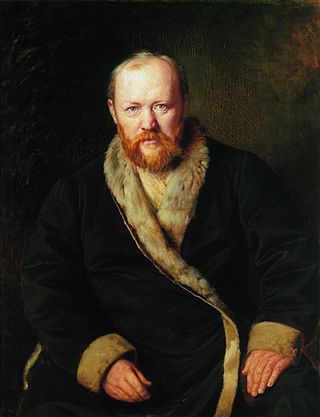
Alexander Nikolayevich Ostrovsky was a Russian playwright, generally considered the greatest representative of the Russian realistic period. The author of 47 original plays, Ostrovsky "almost single-handedly created a Russian national repertoire." His dramas are among the most widely read and frequently performed stage pieces in Russia.
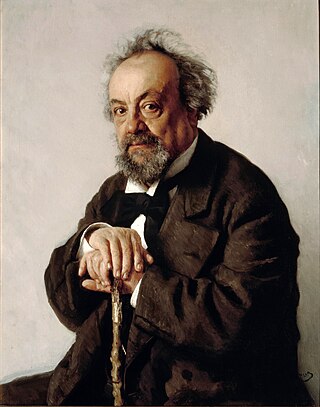
Aleksey Feofilaktovich Pisemsky was a Russian novelist and dramatist who was regarded as an equal of Ivan Turgenev and Fyodor Dostoyevsky in the late 1850s, but whose reputation suffered a spectacular decline after his fall-out with Sovremennik magazine in the early 1860s. A realistic playwright, along with Aleksandr Ostrovsky he was responsible for the first dramatization of ordinary people in the history of Russian theatre. "Pisemsky's great narrative gift and exceptionally strong grip on reality make him one of the best Russian novelists" according to D.S. Mirsky.
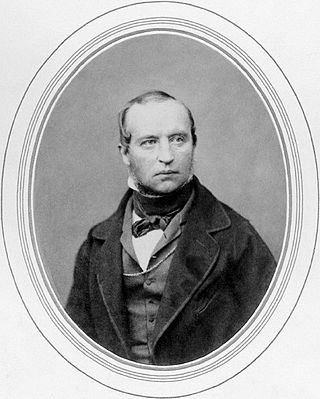
Prince Vladimir Fyodorovich Odoyevsky was a Russian philosopher, writer, music critic, philanthropist and pedagogue. He became known as the "Russian Hoffmann" and even the "Russian Faust" on account of his keen interest in phantasmagoric tales and musical criticism.

Orest Adamovich Kiprensky was a leading Russian portraitist in the Age of Romanticism. His most familiar work is probably his portrait of Alexander Pushkin (1827), which prompted the poet to remark that "the mirror flatters me."

The House of Obolensky is the name of a princely Russian family of the Rurik dynasty. The family of aristocrats mostly fled Russia in 1917 during the Russian Revolution.
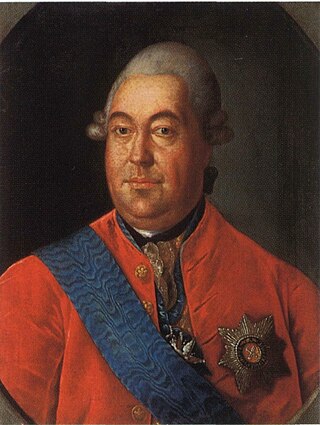
Count (1760) Roman Illarionovich (Larionovich) Vorontsov (1717–1783) was a Full Chamberlain (1746), General-Chef (1761), Senator (1760), Vladimir, Penza and Tambov Governor-General (1778–1783), one of the first figures of Russian Freemasonry. Brother of Chancellor Mikhail Vorontsov and Ivan Vorontsov. He was the owner of the estate Andreevskoe.

Prince Dmitry Petrovich Gorchakov was a Russian writer, dramatist and poet, best known for his satirical verses and three comical operas, staged at the end of the 18th century.
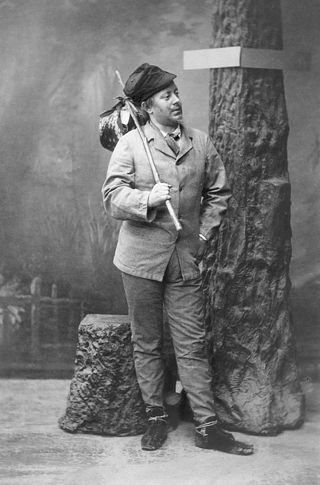
The Forest is a play by Alexander Ostrovsky written in 1870 and first published in the January 1871 issue of Otechestvennye Zapiski magazine. It was premiered at Saint Petersburg's Alexandrinsky Theatre on 1 November 1871, as a benefit for actor Fyodor Burdin. In Moscow's Maly Theatre it was performed on November 26, 1871.
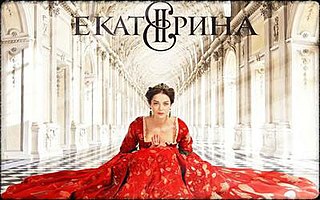
Ekaterina is a 2014 Russia-1 historical television series starring Marina Aleksandrova as the eventual Russian empress Catherine the Great. The first season tells the story of princess Sophie Friederike Auguste, and her rise to power to become Empress of Russia, following a coup d'état and the assassination of her husband, Peter III. The second season portrays the challenges she faces at home and abroad during the early years of her rule, as she tries to revitalise Russia to become one of the great powers of Europe, and becomes titled "the Great".

Vsevolod Vasilyevich Sanayev was a Soviet film and stage actor popular in the 1960s–1970s. Sanayev, a Moscow Art Theatre actor, was honored in 1969 with the People's Artist of the USSR title; among his other accolades are the Order of Lenin (1971) and the Order of the October Revolution (1981).

Catherine The Great is a 2015 Russian television series starring Yuliya Snigir as Catherine the Great. It was released in November 2015 on Channel One Russia.

Vasily Vasilyevich Samoylov was a Russian stage actor, associated with Alexandrinsky Theatre in Saint Petersburg. Initially an opera singer, he was also an artist whose several albums of paintings include the gallery of stage self-portraits, amounting to a visual autobiography.

Baron Ivan Antonovich Cherkasov was a Russian statesman, privy councillor, cabinet secretary to Peter the Great, Catherine I and Elizabeth Petrovna. From him comes the baronial clan of Cherkasovs.

Princess Alexandra Ivanovna Kurakina, née Panina was the daughter of Lieutenant-General and Senator Ivan Panin, the sister of the famous counts Nikita and Peter Panin, the grandmother of Princes Alexander and Alexey Kurakin and poet Yury Neledinsky-Meletsky.
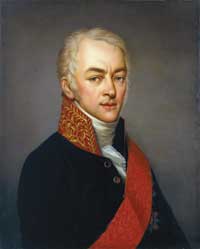
Count Alexey Kirillovich Razumovsky was a Russian statesman from the Razumovsky Family. Son of Count Kirill Razumovsky from a marriage with Yekaterina Naryshkina, brother of Andrey Razumovsky; son–in–law of Count Peter Sheremetev, father–in–law of Sergey Uvarov.
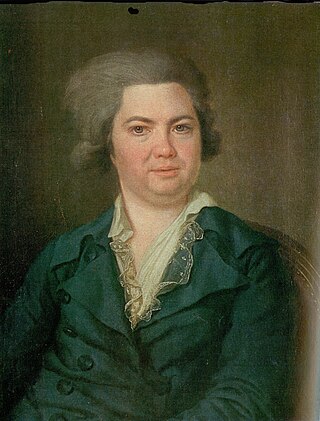
Count Artemiy Ivanovich Vorontsov was a noble of the Russian Empire. He was a senator, Active Privy Councillor, and owner of the Voronovo estate, as well as the godfather of Alexander Pushkin.

















